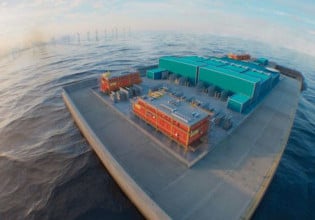World Publics Strongly Favor Requiring More Wind & Solar Energy, More Efficiency, Even If It Increases Costs
A new WorldPublicOpinion.org poll of 21 nations finds very strong support for the government requiring utilities to use more alternative energy, such as wind and solar, and requiring businesses to use energy more efficiently, even if these steps increase the costs of energy and other products. Fewer than half of the nations polled favor putting more emphasis on nuclear energy or on coal or oil. In all nations most people reject the view that shifting to alternative energy sources would hurt the economy, believing instead that it would save money in the long run.
The poll of 20,790 respondents was conducted between July 15 and November 4, 2008 by WorldPublicOpinion.org, a collaborative research project involving research centers from around the world and managed by the Program on International Policy Attitudes (PIPA) at the University of Maryland. Margins of error range from +/-2 to 4 percent. Interviews were conducted in 21 nations, including most of the largest nations.
Asked how much emphasis their government should put on a number of approaches to the problem of energy, the most popular among respondents is for the government to put more emphasis on installing solar or wind energy systems. Majorities favor it in 20 of the 21 nations, led by South Korea (89%), Kenya (88%), France (88%), Italy (88%), and the US (87%). Only Russia (a major oil producer) lags behind, with just 50 percent in favor. On average, 77% favor greater emphasis on solar or wind.
Respondents were also asked about the possibility of the government "requiring utilities to use more alternative energy, such as wind and solar, even if this increases the cost of energy in the short run." Even with the costs highlighted, majorities in all but two nations favor the idea, though the average level of support slips a bit to 69 percent. Support is again highest in South Korea (96%), France (88%), and Kenya (87%). The public in Taiwan also shows widespread support (88%). Once again Russia departs from the norm with a divided response, and only a plurality in Azerbaijan (another oil producer) favors the idea.
One of the reasons that emphasizing increased costs in the short run has little impact on support may be that respondents are also optimistic that shifting to alternative energy sources will save money in the long run. Presented two competing arguments about the cost of "making a major shift to alternative energy sources, such as wind and solar," in all nations a majority takes the view that "with the rising costs of energy, it would save money in the long run." On average two thirds (66%) take this optimistic view. In no nation does a majority favor the view that it "would cost so much money that it would hurt the economy."
The second most popular approach to the problem of energy is to put more emphasis on "modifying buildings to make them more energy efficient," and is favored by majorities in all nations. On average 74% favor this approach. Support ranges from 54% in India and the Palestinian Territories to 89% in Great Britain and France.
Respondents were also asked whether they favor the government "requiring businesses to use energy more efficiently, even if this might make some products more expensive." Highlighting the cost factor, as well as making the effort mandatory, means support is a bit lower – though, on average, a majority of 58 percent favors the idea.






